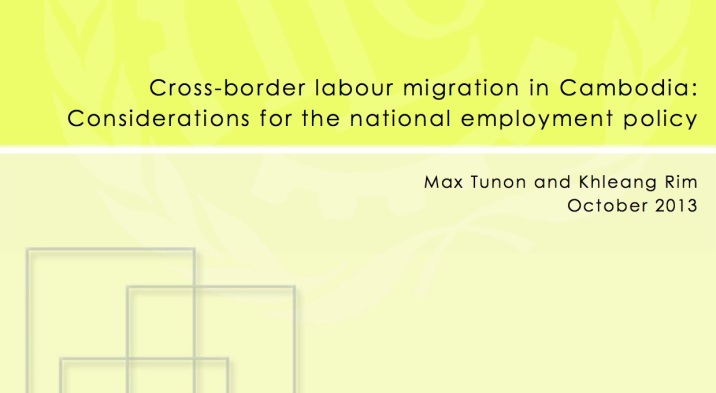
ILO Asia-Pacific Working Paper Series, October 2013
Authors: Max Tunon & Khleang Rim
ABSTRACT
It is projected that Cambodia’s labour force will grow by 22 per cent between 2007 and 2015. An estimated 250,000 to 300,000 new young workers are entering the labour force each year, for whom decent employment opportunities need to be found. Yet, the domestic labour market still generates limited employment opportunities and relatively low wages, compared to opportunities that exist abroad. As a result, more Cambodians are considering leaving the country to find work abroad. There were an estimated 350,400 Cambodian migrants in 2010. Migrants are increasingly women, largely due to increased demand for women in domestic work and in the manufacturing sectors. For overseas migration to be safe and protected, legal and institutional mechanisms need to be in place to inform potential migrant workers about working abroad and their rights at work, among other measures. Cambodia has initiated, and continues to develop, policy actions and institutions to enhance governance of the migration process. At the same time, more policy efforts may be needed to ensure that overseas migration is strategically promoted and harnessed for domestic economic and labour market developments. The national employment policy could play a role in providing strategic directions to migration, from the perspective of domestic economic development and national development goals, and in encouraging and connecting return migrants to the domestic labour market in a gender-responsive manner. In this regard, some institutional mechanisms would need to be in place to recognize work experiences and skills gained abroad, and generate information on return migrants as well as their labour market outcomes in the country. As a first step, the challenge of information deficiency on return migration needs to be overcome before a programme can be formulated to encourage return migration and enhance the development impact of overseas migration.
See Chapter 9 for findings specific to migrant labour recruitment